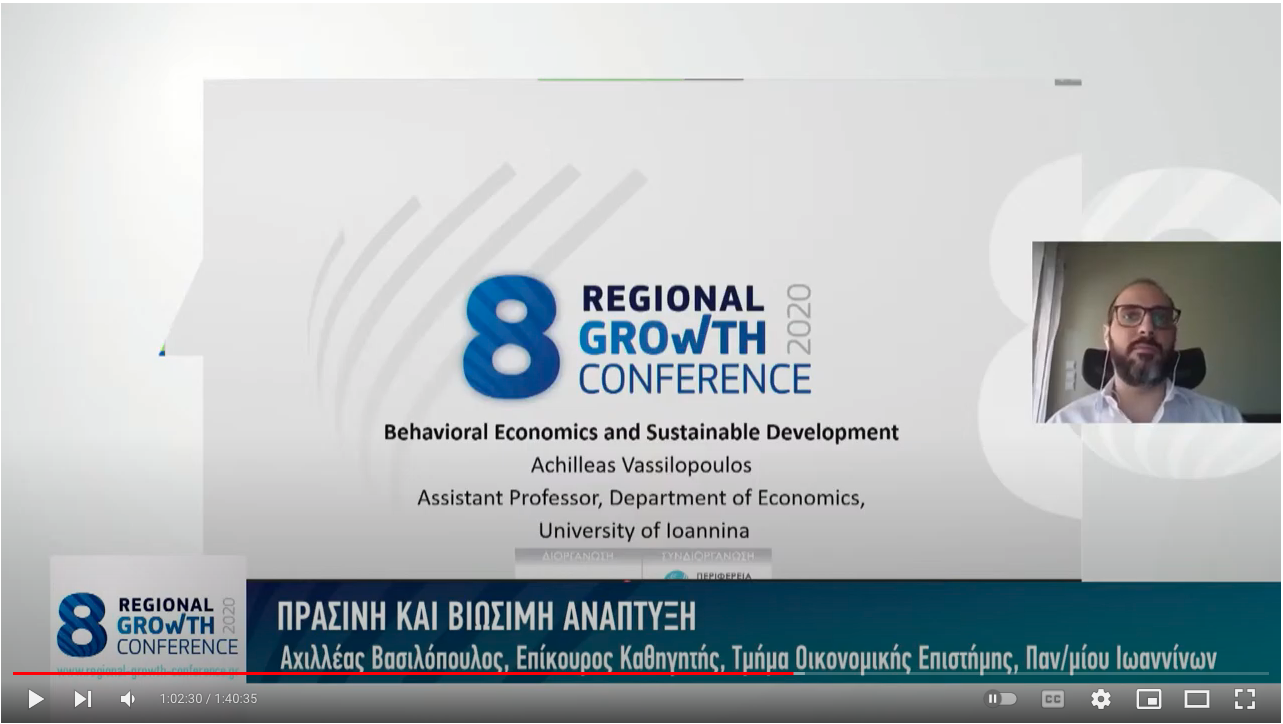Projects
Ongoing Projects
Flagship action | Innovative Plant Protection (Kainotomos Fytoprostasia)
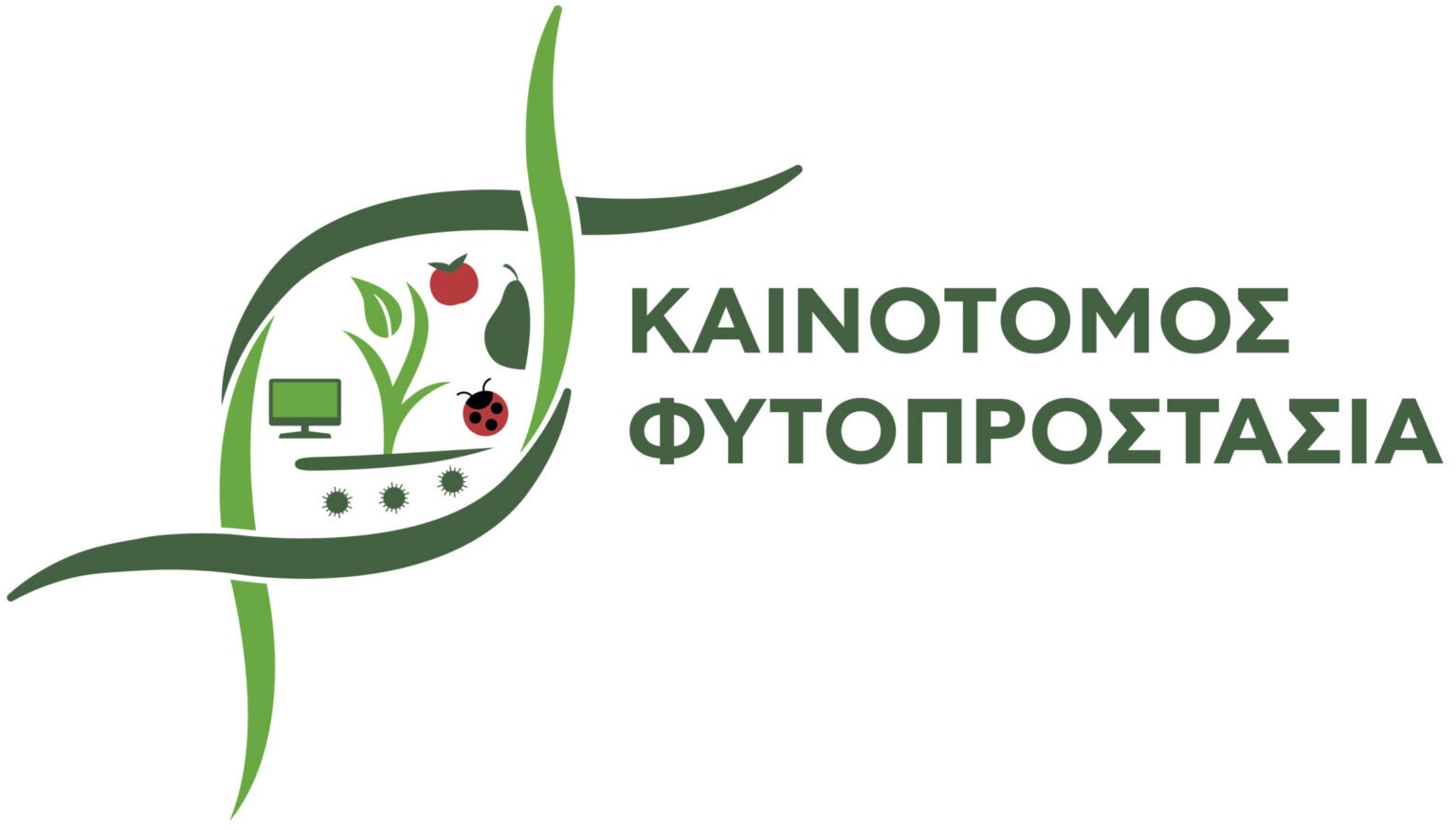
Kainotomos Fytoprostasia is a flagship action under the framework of Greece 2.0 - National Recovery and Resilience Plan, focused on developing modern technologies, smart strategies, and innovative products for sustainable and environmentally friendly plant protection. Key research approaches include predictive models, diagnostic methods, innovative bio-protection products, biological control, and precision applications for optimal plant protection management. The work packages include advanced diagnostic tools, enemy identification and prediction models, innovative bio-protective methodologies, and more. This project aims to reduce synthetic pesticides, train new scientists, and build a network of collaborations among Greek research institutions.
Funding scheme: NextGenerationEU
Start date: 01/01/2024
Duration: 21 months
Overall budget: 4.915.000,00 €
Find out more: Project website
Horizon 2020 | Multi-agent Agri-food living labs for new supply chain Mediterranean systems. Towards more sustainable and competitive farming addressing consumers’ preferences and market changes (acronym: LAB4SUPPLY)
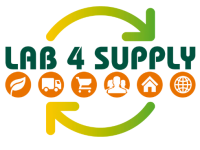
LAB4SUPPLY is a Research and Development project that aims to provide a practical solution to address the current difficulties of Mediterranean smallholders and traditional farmers. The Project will create two levels of stakeholders’ interaction by developing an Agrifood Stakeholders Platform (ASP) and a digital Decision Support System (DSS) ICT tool, to maximize outreach and beneficial influence of the project results and reach the target users. The project will offer an innovative and viable alternative solutions and opportunities to allow the smallholders to increase their competitiveness and profitability, using optimized agri-food supply chains and improving adaptation capacity to unexpected market changes, which at the same time will be better perceived by the consumers.
Funding scheme: H2020 – PRIMA
Start date: 01/07/2021
Duration: 36 months
Overall budget: 1.120.070,00 €
Find out more: LAB4SUPPLY website
H2020 | Boosting Excellence in Experimental Research for Agri-Food Economics and Management (acronym: AgriFoodBoost)

The main aim of AgriFoodBoost is to improve research excellence and scientific visibility of agri-food economics at the Faculty of Agriculture in Zagreb (FAZ). The project, designed in partnership with University of Bologna, Agricultural University of Athens and Swedish University of Agricultural Sciences focuses on the use of experimental economics applied to agriculture, food and environment. AgriFoodBoost twinning will enhance scientific, innovation and academic capacities of FAZ researchers in order to become competitive on the scientific market, but also to offer new expertise to agri-food business sector. The project will assist in improving faculty-industry networking by establishing a research HUB for experimental economics, enabling FAZ to become a regionally leading Centre for experimental agri-food economics and management.
Funding scheme: H2020 – TWINNING
Start date: 01/10/2020
Duration: 36 months
Overall budget: 899.315,00 €
Find out more: AgriFoodBoost website
Past Projects
My presentation at the Regional Growth Conference (2020) where I explain how behavioral economics can contriubte to sustainable development goals and present some of the projects I worked on as part of the ae4ria cluster (In Greek)
Climate KIC | Circular Learning Hub : A learning hub for the engagement and ecosystem transition towards circular thinking (acronym: CL-hub)
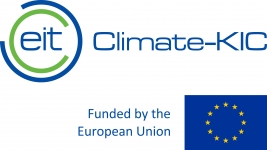
The objectives of CL-hub is to create the mindset required to act against climate change. Actors in the ecosystem (firms, investors, citizens, policy makers, regulators, universities, industry associations, financial intermediaries, etc.) should become aware of the climate change implications, then they must establish the intention to change their behaviour and finally they must act to make the change. Based on empirical behavioural economics, we will test on a defined group of investors and entrepreneurs some de-biasing videos specifically designed to overcome the hyperbolic discount bias on one of the priorities for the contrast to the climate change, which is the implementation of circular economy (CE) in the industry production.
Funding scheme: Climate KIC
Start date: 01/06/2019
Duration: 18 months
Overall budget: 185.701,00 €
Find out more: CL-hub website
Interreg | Regional cooperation for the transnational ecosystem sustainable development (acronym: RECONNECT)

The RECONNECT project aims to develop strategies for sustainable management of Marine Protected Areas (MPAs) and Natura 2000 sites. The study areas are characterised by similar habitats in different countries, which are threatened by common pressures. Creating a transnational cooperative network to confront under a common approach the environmental threats of ecosystems with a high natural and cultural interest, is the overall goal of this project. The establishment of common practices and a joint regional strategy are the main challenges of RECONNECT. The overall objective of the project is to promote efficient management of natural systems which will enhance the competence of local management authorities through the development of a multidisciplinary Decision Support System (DSS). The new transnational holistic approach which will be developed, will change the current protection strategies in the Balkan-Mediterranean area promoting more efficient and accurate management practices. The main outputs of the RECONNECT project will provide information concerning habitat attributes, as well as the essential biodiversity, socio-economic and cultural variables, which will be freely available as tools through a web-based platform.
Funding scheme: Interreg
Start date: 15/09/2017
Duration: 24 months reconnec Overall budget: 1.227.576,70 €
Find out more: RECONNECT website, My presentation at the joint DSS workshop
Horizon 2020 | OpenAIRE – CONNECTing scientific results in support of Open Science (acronym: OpenAIRE-Connect)

OpenAIRE-Connect will adopt an end-user driven approach (via the involvement of 5 prominent research communities), and enrich the portfolio of OpenAIRE infrastructure production services with a Research Community Dashboard Service and a Catch-All Notification Broker Service. The first will offer publishing, interlinking, packaging functionalities to enable them to share and re-use their research artifacts (introducing “methods, e.g. data,software, protocols). This effort, supported by the harvesting and mining “intelligence” of the OpenAIRE infrastructure, will provide communities with the content and tools they need to effectively evaluate and reproduce science. OpenAIRE-Connect will combine dissemination and training with OpenAIRE’s powerful NOAD network engaging research communities and content providers in adopting such services. These combined actions will bring immediate and long-term benefits to scholarly communication stakeholders by affecting the way research results are disseminated, exchanged, evaluated, and re-used.
Funding scheme: H2020
Start date: 01/01/2017
Duration: 30 months
Overall budget: 1.997.837,50 €
Find out more: OpenAIRE-Connect website
Horizon 2020 | Social Innovations in Marginalized Rural Areas (acronym: SIMRA)

SIMRA’s overarching objective is to fill the significant knowledge gap in understanding and enhancing social innovation in marginalised rural areas by advancing the state-of-the-art in social innovation and connected governance mechanisms in agriculture and forestry sectors and in rural development in general. This objective will be achieved by blending diverse theoretical positions into a coherent explanation of spatial variability of social innovation, encompassing its empirical diversity (complexities and various dimensions), co-constructing a novel evaluative toolkit, and developing improved knowledge of determinants of success in order to answer the question of how to support enhanced governance and social innovations, addressing specificities and priorities of social needs and new social relationships and collaborations, especially in marginalised rural areas across the EU, Associated States and other countries, with a particular focus on the Mediterranean region, including non-EU Mediterranean countries.
Funding scheme: H2020
Start date: 01/04/2016
Duration: 48 months
Overall budget: 5.935.828,75 €
Find out more: SIMRA website
Horizon 2020 | BRIdging the GAp for Innovations in Disaster resilience (acronym: BRIGAID)
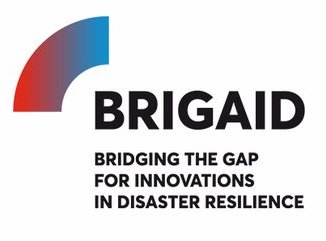
BRIGAID aims to become the quality label for the development of innovations for climate adaptation and risk reduction from climate-related disaster impacts in Europe and beyond.
Funding scheme: H2020
Start date: 01/05/2016
Duration: 48 months
Overall budget: 7.739.805,79 €
Find out more: BRIGAID website
Interreg MED | Actions for Marine Protected Areas (acronym: AMAre)

The objectives of AMAre are 1) to develop shared methodologies and geospatial tools for multiple stressors assessment, coordinated environmental monitoring, multi criteria analyses and stakeholders’ engagements; 2) to translate these guidelines into concrete pilot actions and coordinated strategies in selected Marine Protected Areas (MPAs) to solve hot spots of conflicts affecting marine biodiversity and the services it provides. Transnational cooperation and regulations, development of coordinated best practices to deal with present and future drivers of changes in biodiversity and ecosystem services, coordinated monitoring, data access to share information and concrete stakeholder and users’ involvement are the expected results.
Funding scheme: ERDF/IPA
Start date: 01/11/2016
Duration: 36 months
Overall budget: 2.663.093,33 €
Find out more: AMAre website
H2020 | Portable photonic miniaturised smart system for on-the-spot food quality sensing (acronym: PhasmaFOOD)
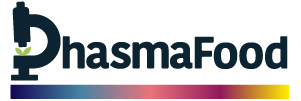
The main objective of PhasmaFOOD is to design and implement a parameterized, knowledge-based, multi-target food sensitive mini-portable system, with heterogeneous micro-scale photonics for on-the-spot food quality sensing and shelf-life prediction. In particular, the miniaturized smart integrated system will be able to detect food hazards, spoilage (incl. early sign of spoilage) and food fraud through the combined bio-chemical data analysis and additionally will be able to perform food components/additives analysis, food identification and prediction of food shelf-life.
Funding scheme: H2020
Start date: 01/01/2017
Duration: 36 months
Overall budget: 3.095.825,00 €
Find out more: PhasmaFOOD website
FP7 | EPODE for the Promotion of Health Equity (acronym: EPHE)

Ensemble Prévenons l’Obésité des Enfants (EPODE) methodology is an innovative approach to counteract obesity and improve health equity. The EPHE project has assessed the impact and sustainability of the EPODE methodology to diminish inequalities in childhood obesity prevention. The current data represent the results of the intermediate measurements that were obtained following EPHE interventions in 7 European communities across different countries
Funding scheme: FP7 (DG SANTE)
Start date: 01/10/2012
Duration: 36 months
Overall budget: 95.476,00 €
Find out more: EPHE website , EPHE book
ERDF | Innovation and Entrepreneurship - Exploitation of Research at the Agricultural University of Athens

The Agricultural University of Athens (AUA), under the Project “Athina” is implementing the Project Innovation and Entrepreneurship - Exploitation of Research at the Agricultural University of Athens. The project is co-financed by the European Union (European Regional Development Fund) and the Greek State and aims to exploit the results of the research activity of AUA members in order to maximize the benefits of the University itself, the Municipality, the local region and, more generally, the Greek society and economy.
Funding scheme: ERDF and the Greek State
Find out more: Project website
Latsis Foundation | Consumers’ willingness to pay for agricultural products certified to ensure fair working conditions
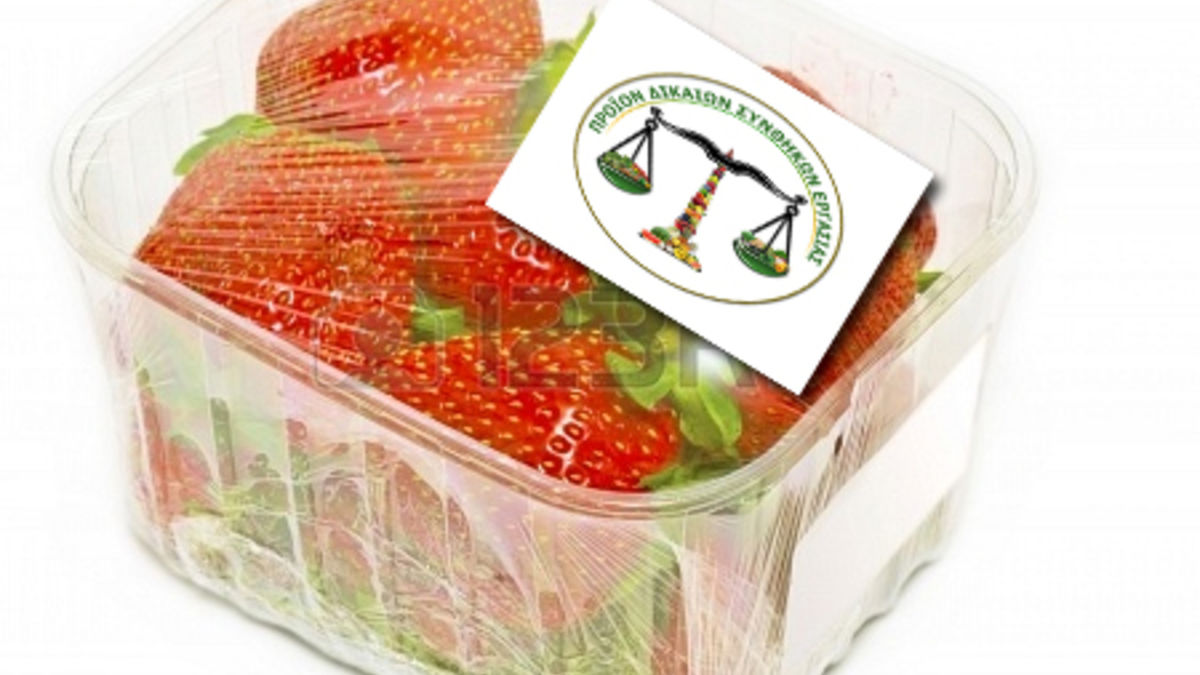
This project seeks to estimate consumers’ willingness to pay for agricultural products certified to ensure fair working conditions and evaluate farmers’ claims that in order to keep market prices at levels consumers are willing to pay and be competitive relative to imported agricultural products, they can’t afford the cost of providing fringe benefits (subsistence wages, reasonable working hours, access to descent housing and personal hygiene facilities, health care services etc.) to the employees.
Funding scheme: Latsis Public Benefit Foundation
Start date: 01/01/2014
Duration: 12 months
Overall budget: 12.000,00 €
Find out more: Grant website
LIFE | Innovative precision technologies for optimized irrigation and integrated crop management in a water-limited agrosystem (acronym: HydroSense)
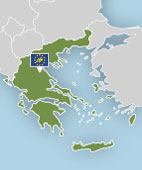
The HydroSense project aims to improve efficiency in the use of water, fertilisers and pesticides for the production of a major Mediterranean agricultural crop (cotton) by employing site-specific management and advanced technologies in proximal remote sensing, such as the employment of advanced canopy sensors. The project will also produce data and tools to evaluate the project’s economic effectiveness and the potential to scale it up to the regional level, or transfer the methodology to other regions and other agricultural crops. Training and dissemination activities are also planned to reach these objectives.
Funding scheme: LIFE08 ENV/GR/000570
Start date: 01/01/2010
Duration: 36 months
Overall budget: 1.693.575,00 €
Find out more: HydroSense website
FP7 | Partnership, healthy eating and innovative governance as tools to counteract obesity and overweight (acronym: Obesity Governance)

The aim of the project is to study innovative approaches, such as industry involvement and public-private partnership initiatives, to counteract obesity and overweight in Europe, particularly through reformulation of manufactured food. It contributes to the ‘Promote health’ objective under the Nutrition, overweight and obesity related health issues aspects of the Health Programme. Its assessment of good practices in programmes involving retailers brings the project in line with the EU Platform for Action on Diet, Physical Activity and Health.
Funding scheme: FP7
Start date: 01/11/2009
Duration: 26 months
Overall budget: 600.000,00 €
Find out more: Obesity Governance website
FP6 | Increasing fruit consumption through a trans-disciplinary approach delivering high quality produce from environmentally friendly, sustainable production methods (acronym: ISAFRUIT)
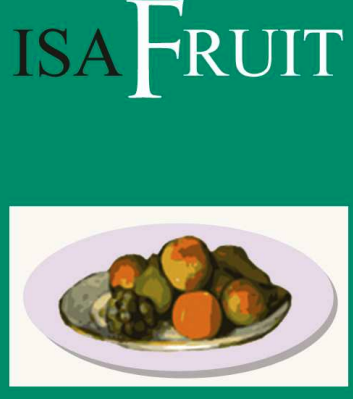
ISAFRUIT is an integrated project aiming at improved health of the European community by increasing fruit consumption. Increased consumption shall be achieved through consumer satisfaction: ISAFRUIT aims to better fulfil the consumer preferences and expectations with regard to the quality, safety, convenience and availability of fruit and fruit products at the point of sale. Consumer linked sciences are therefore the starting point of ISAFRUIT, giving input to the other RTD activities. In addition, ISAFRUIT wants to increase the consumers??? awareness of the health effects of fruit while also researching human health effects of fruit consumption. The fruit species used as models are apple and peaches/nectarines. Activities on quality and health effects as well as on convenience of processed fruit shall stimulate consumer interest in a wide range of healthy products. The proposed research on sustainable production methods including organic and integrated production will not only increase the safety of fruit, but also have positive effects on the European environment. Control of fruit quality throughout the supply chain from the point of sale to the farm is covered by various work packages. Genetics and implementation of new varieties is included considering long-term perspectives for the environment as well as to cope with characteristic preferences of consumers that currently hardly eat fruit. The ISAFRUIT Integrated project is built on 7 pillars: 1) Consumer driven and responsive supply chain, 2) Fruit and Human Health, 3) Improved appeal and nutritional value of processed fruit, 4) Quality, safety and sustainability - Improved pre harvest chain management, 5) Quality, safety and sustainability - Improved post harvest chain, 6) Genetics of fruit quality and implementation of better fruit cultivars, 7) Knowledge management. ISAFRUIT consists of a Management Committee, a Project and Pillar Coordinators, an SME-Committee, a Scientific Group and the General Assembly.
Funding scheme: FP6
Start date: 01/01/2016
Duration: 48 months
Overall budget: 21.432.220,00 €
Find out more: ISAFRUIT website
